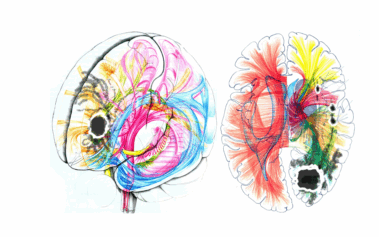Every brain tumor diagnosis is unique – and we tailor your therapy just as individually. At the Center for Neuro-Oncological Neurosurgery at Beta Klinik Bonn, we combine highly specialized medical expertise with state-of-the-art medical technology and the freedom of an independent private clinic. This means for you: tailored treatment strategies, an interdisciplinary team with years of experience, and an environment where quick decisions are possible without unnecessary waiting times. Especially for complex tumor types like glioblastoma, tumor recurrences, or brain metastases, our center is a sought-after point of contact – even for patients who are considered to have exhausted treatment options elsewhere.
We carefully review each case and discuss all therapy options with you on an equal footing – whether established procedures or access to innovative studies and immunotherapies. Learn about the most common brain tumor types below – and find out how we treat you individually.
Glioblastoma – Highly Aggressive but Treatable: Our Interdisciplinary Approach for Grade 4 Tumors
Individualized treatment plans with state-of-the-art surgery, radiation therapy, and innovative medications.
Malignant grade four brain tumors are particularly aggressive. Glioblastoma grows invasively into the brain and, if left untreated, often leads to the loss of important functions within a few months. Our neuro-oncologists usually combine several treatment methods (surgery, radiation therapy, and chemotherapy) to control the tumor as effectively as possible.
Learn more about glioblastoma
Glioma – Differentiated Treatment Depending on Cell Type and WHO Grade
From low-grade to high-grade: We analyze precisely and treat targeted.
Gliomas are a group of intrinsic brain tumors that originate from glial cells. Depending on the cell type, these include, for example, astrocytomas and oligodendrogliomas – they are classified from WHO Grade 1 (low-grade, often benign) to WHO Grade 4 (high-grade malignant, glioblastoma). Depending on the type and grade of glioma, treatment strategies and prognosis can vary significantly.
Treatment of glioma
Brain Metastases – When Cancers Reach the Brain
Tailored therapy through neuro-oncological expertise and close interdisciplinary collaboration.
Metastases in the brain are secondary growths from another malignant tumor in the body. They represent the most common form of malignant brain tumors. Often, for example, lung cancer, breast cancer, kidney cancer, or melanoma lead to the formation of such secondary growths in the brain. The treatment of brain metastases is usually carried out in close interdisciplinary collaboration – our medical team advises you on whether surgery to remove the metastasis, radiation (e.g., stereotactic radiosurgery), or systemic therapy (chemotherapy, immunotherapy for the primary disease) is appropriate.
Treatment of brain metastases
Tumor Recurrence – When the Brain Tumor Returns:
Second opinion, study access, and new paths: We don’t give up – even with recurrence.
A recurrence is when a brain tumor returns after initially successful therapy. Unfortunately, recurrences occur frequently, particularly with malignant brain tumors – i.e., from metastases or glioblastomas. At our Neuro-Oncological Center in Bonn, we individually review which further treatment options exist for each recurrence. This can be a repeat operation, a second radiation, the use of chemotherapy, or new therapeutic approaches within the framework of studies. We also accompany you with empathy and competence in the case of recurrence.
Treatment of tumor recurrences.









